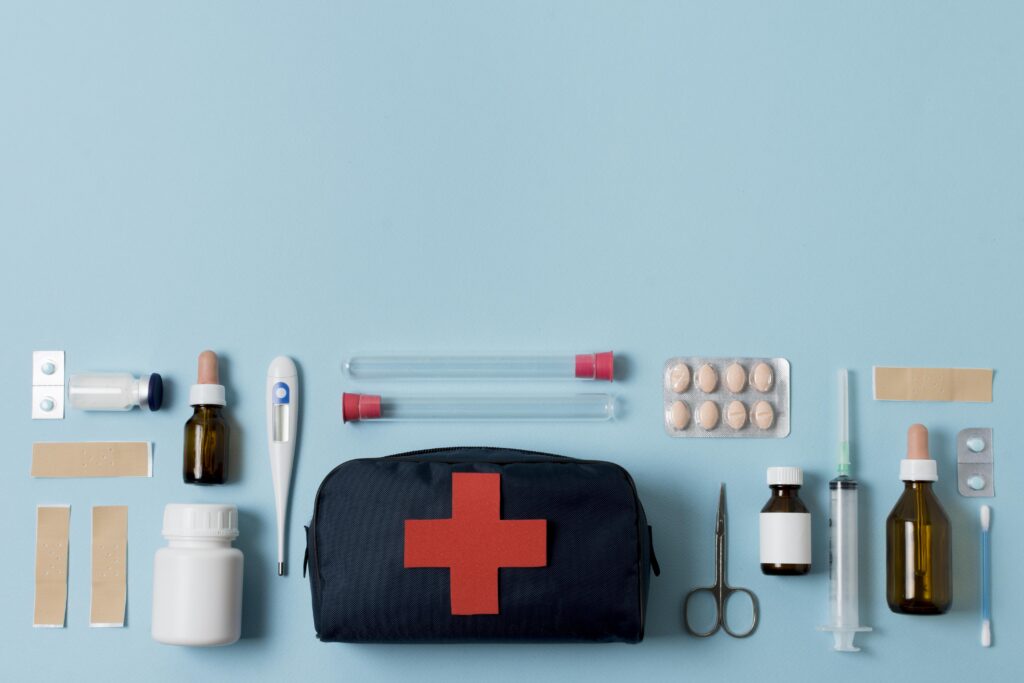
Scenario: A friend of yours is in need. She accidentally cut her hands while trying to chop vegetables. Her hands are dripping with blood and you are there. What would you do in this situation? Yes, first aid is obvious, but how would you start?
Your first instinct would be to get cotton pads and try to control the bleeding. Well, you are wrong. You should refrain from using cotton to control bleeding as there is a high chance of the patient getting infected.
There is no denying that attending to an injured person is challenging, especially when you are panicking and you don’t know the right thing to do. This is where this blog post comes in to tell you what not to do when you are providing first-aid to someone.
Refrain from using cotton
While cotton is good at absorbing blood, and can be used to put pressure on a wound, here are some considerations
- If not labelled, cotton balls or pads are not sterile. Using non-sterile materials can risk infection.
- The fibres of a cotton pad can stick to the wound, aggravating damage and increasing the risk of infection.
- Using cotton may stop bleeding but it can also delay proper treatment needed in cases of serious injuries, where bleeding doesn’t stop with direct pressure.
Hence, it is recommended that you use clean, sterile bandages to apply pressure to control bleeding. If the bleeding does not stop, or the patient exhibits other concerning symptoms, it is crucial to seek medical attention immediately.
Don’t use greasy ointments
In case of burn injuries, greasy ointments are commonly used. But greasy ointments such as butter or petroleum jelly can trap the heat and bacteria that cause infection. Instead, you can opt to run cool water over your burn for a few minutes and wash it gently with soap. If your burn is bigger than your hand, or if it is on your other body parts, seek medical help immediately.
Don’t apply heat directly to frozen hands:
While restoring warmth to frozen hands is essential, applying direct heat like hot water bottles or open flames can be dangerous. This can cause uneven thawing, leading to tissue damage and worsening the injury.
Don’t remove deeply stuck objects:
If a foreign object like a knife or splinter is lodged deep in a wound, never attempt to remove it yourself. Removing the object could cause further bleeding and damage to surrounding tissues. Instead, stabilise the object and seek immediate medical attention.
Don’t remove gauze stuck to a deep wound:
If a dressing adheres to a deep wound, don’t try to peel it off forcefully. This can rip at the wound and cause further bleeding. Apply gentle pressure around the wound with clean gauze or cloth and seek medical attention for proper removal.
Don’t rub an injured eye:
The eye is a delicate organ, and rubbing a foreign object or injury can cause significant damage. Instead, gently irrigate the eye with clean water or a sterile eyewash solution. If the object remains lodged, or if there’s severe pain or vision problems, seek immediate medical attention.
Don’t apply tight bandages:
While applying pressure to control bleeding is often necessary, using excessively tight bandages can restrict blood flow and cause further damage. Aim for a snug but comfortable fit, allowing for proper circulation beyond the bandage. If the bleeding worsens or the limb appears numb or pale, loosen the bandage and seek medical attention.
Closing thoughts
With these don’ts of first aid, you can avoid unintentionally worsening an injury and ensure the best possible outcome for the person in need. Remember, when in doubt, always err on the side of caution and seek professional medical attention. Even a seemingly minor injury can escalate quickly, and a qualified medical professional can assess the situation and provide the necessary treatment. So, stay calm, take these “don’ts” to heart, and prioritise the safety and well-being of the injured person until help arrives.
Book Your Full Body Health Checkup Today




